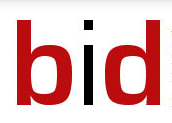| This video contains interviews [in Spanish] to José-Manuel Báez-Cristóbal, Head of Support Services to R+D, Spanish Foundation for Science and Technology (Fecyt); and to Fernanda Peset-Mancebo, Professor at the Polytechnical University of Valencia. Valencia, Spain, September 23rd 2008 (c) Universidad Politécnica de Valencia (UPV) |
-------
Authors correct identification is becoming a general concern al over the world due to the increasing number of people writing scientific works. Some publishers (Thomson Reuters, Elsevier's Scopus), scientific authorities and research groups have put in place authority names systems, with different success levels.
In Spain and in Hispano American countries (unlike Anglo-Saxon, Portuguese, Nordic and Slavic countries...) there exist an additional problem: the surname of the father is used in first place, with that of the mother next, and in many cases it is used a compound first name.
Authors signing with their complete official name (as appears on their identity card, passport, driving licence, Social Security documentation, etc.) are often faced with the unpleasant surprise that their works published in journals appear in the OAI stores, and in the international databases in different ways –according to the interpretation of the compiler of the database, the editor or the source in hand-. As a result on occasions the compilation of a personal bibliography becomes complicated. The fact that a signature can be made up of a number of elements also adds to the author signing his works in different ways.
Author’s names standardization is a matter of special importance for academics whose recognition is based on their personal curriculum.
IraLIS aims to help to reduce this serious distortion in the compilation of personal bibliographies as far as possible, in three ways:
1. By creating a register of names of authors to help to locate the different variants. The register will incorporate both those that an author may have used, and those that may have been interpreted by the producer, compiler, browser, etc., of the different sources of information.
2. By making the Hispanic authors aware of the problem so that they always sign their works in the same way, thinking of how they will be referenced by the international databases, journal editors, OAI archives, Google Scholar, etc.
3. By creating the simple IraLIS form of signature which allows a suitable and unconfused recognition by all sources of cultural information.





